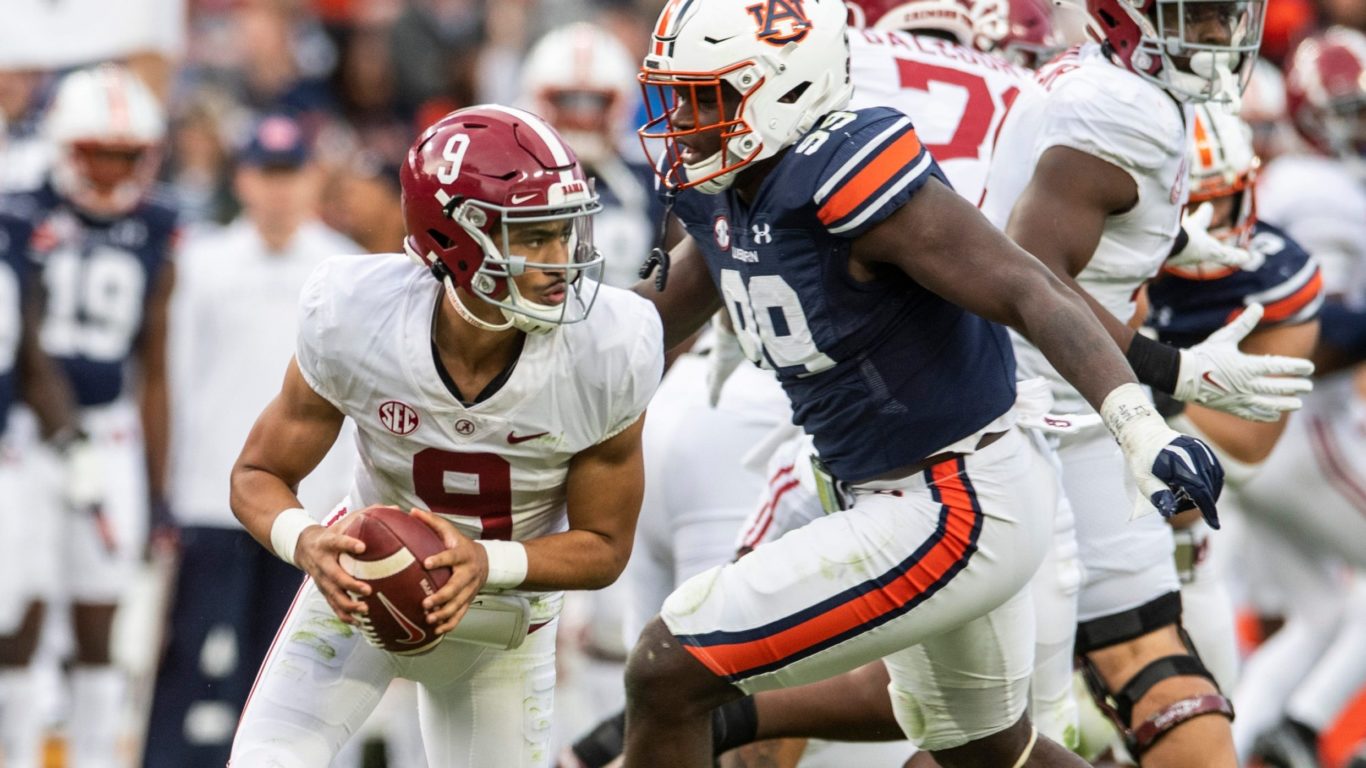
Brad Edwards: It’s been a while since the last Iron Bowl like this
(BVM) — The Iron Bowl, whether you believe it should still carry that name or not*, is one of the greatest rivalries in all of American sports.
That said, this isn’t one of the more anticipated matchups in the series.
Auburn, although playing with a sense of purpose down the stretch, is 5-6 and has an interim head coach. Alabama, although it’s not technically out of the playoff hunt, enters this game with more than one loss for the first time since 2010.
In a way, however, that setup might make the matchup more compelling than it’s been for most of the Nick Saban era.
This is only the second time in the last 15 seasons that Bama has entered the Iron Bowl without obvious national championship implications. The previous time was the aforementioned 2010 season, when Auburn was undefeated and in the thick of the title race.
So, for the first time since 2007 (Saban’s first season at Bama), there’s no real sense that a larger prize might await the winner. This game isn’t just a stepping stone on the path to a postseason run for one of these sides. This time – for both teams – it’s simply about the rivalry.
It doesn't get much better than the Iron Bowl.#RollTide | @AlabamaFTBL pic.twitter.com/Q8UOGsQYqT
— Alabama Athletics (@UA_Athletics) November 24, 2022
To many old-school fans of Alabama and Auburn, that’s just fine. Some of the best and most memorable games in the series were played in the 25-year stretch from 1982-2006, and very few of those had any impact on the national title chase. The Iron Bowl, like any great rivalry, doesn’t need higher stakes to be relevant.
But does the younger segment of the two fanbases share that sentiment?
Many times, Saban has stated his belief that an expanded playoff in college football would make the season more and more about reaching the playoff and render everything else less meaningful.
We know a 12-team playoff will be upon us in just a few seasons, and if it was already in place now, to many people this game would be about Alabama winning and getting into that playoff. And that mindset wouldn’t apply only to the Iron Bowl.
The huge stakes of Saturday’s Ohio State-Michigan game would be significantly decreased in a 12-team playoff world. There would be no threat of the loser’s season being ruined. The loser would simply have to play an extra postseason game to win it all.
It’s very reasonable to think that for some college football fans, many great end-of-season rivalries may become less about the ecstasy of victory and the agony of defeat and more about the benefit of a first-round bye or home-field advantage.
For those of us who grew up with “Rivalry Saturday” being a special day of the year, these games will always matter. But whether they’ll mean as much to the next generation remains to be seen. And that’s not their fault.
“Progress” often comes with unintended consequences, and in college football, one of those potential trade-offs is already evident.
But, for now, enjoy this Iron Bowl for what it is. True rivalries don’t require the teams to be great. They merely require that the loser must carry that pain for 12 months.
Let’s hope that will always be the case.
Brad Edwards is a college football analyst for BVM Sports. He has covered the sport professionally since 1996 and is author of the book “Dynasty by the Numbers: Why Alabama Now Owns the Greatest Decade-Plus Run in College Football History.”
* The rivalry got its name, the Iron Bowl, from being played in the iron-producing city of Birmingham every year from 1948-1988. It hasn’t been played there since 1998.





